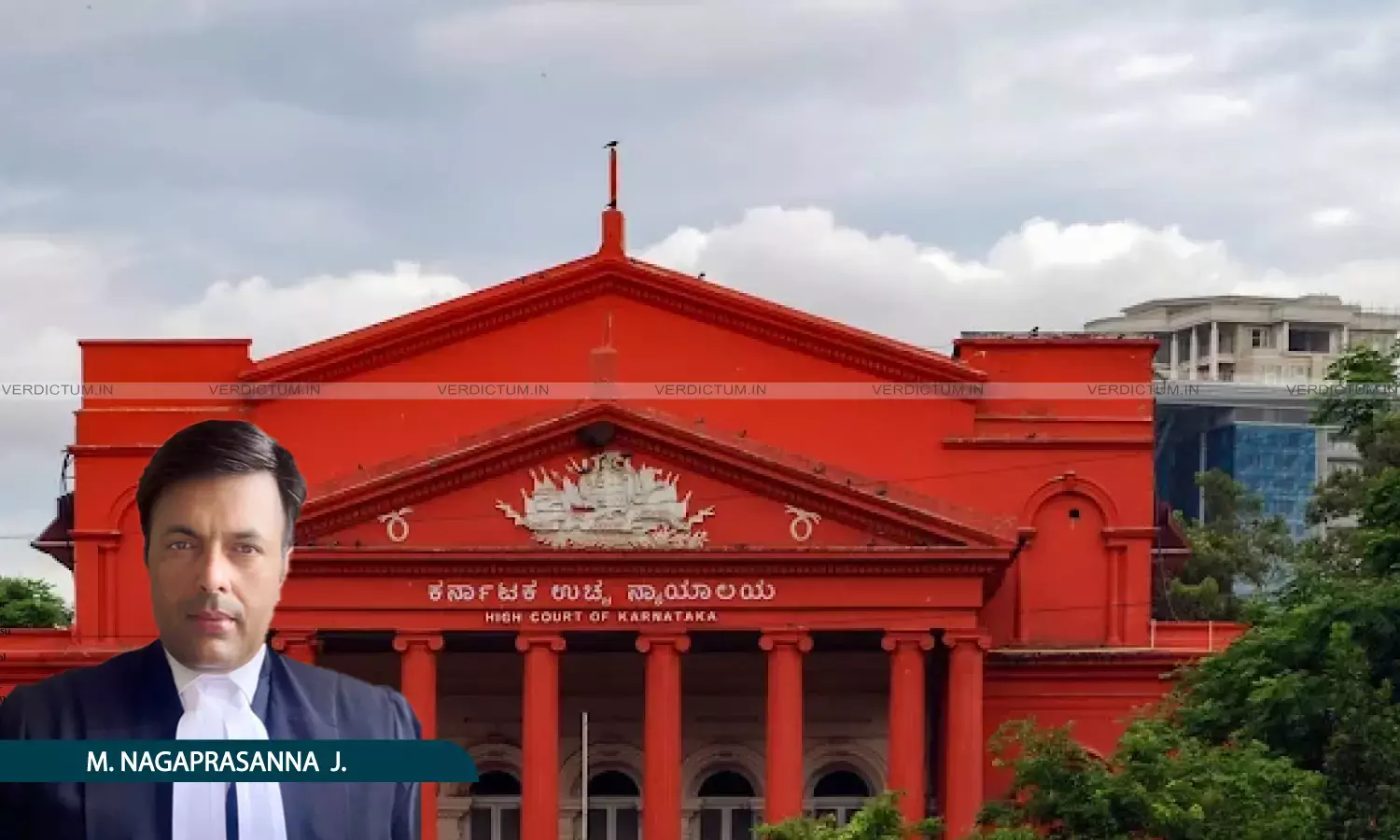State Bar Councils Cannot Collect Any Fee Beyond Statutory Enrolment Fee U/S. 24(1)(f) Of Advocates Act: Karnataka High Court
The High Court held that the issue of collecting amounts in excess of the statutory enrolment fee stands concluded by the Supreme Court, which has reiterated that State Bar Councils cannot charge any amount beyond what is stipulated under Section 24(1)(f) of the Advocates Act.

Justice M. Nagaprasanna, Karnataka High Court
The Karnataka High Court reiterated that the State Bar Councils cannot collect any amount in excess of the enrolment fee prescribed under Section 24(1)(f) of the Advocates Act.
The Court was hearing a writ petition filed by an Advocate who sought a direction to refund the portion of fee collected beyond the statutory limit and to cease the practice of collecting any amount under any nomenclature at the time of enrolment.
A Bench comprising Justice M. Nagaprasanna, while referring to the Apex Court’s ruling in Gaurav Kumar v. The Union of India and KLJA Kiran Babu v. Karnataka State Bar Council, held that “Karnataka State Bar Council cannot and will not collect any fee contrary to law”,
The Petitioner appeared in person, while Advocates Archana Magdum and Rajashekhar Burji represented the respondents.
Background
The petitioner, who had enrolled as an advocate in October 2024, contended that beyond the prescribed fee of ₹750, the Karnataka State Bar Council had been collecting an amount of ₹6,800 under the head of optional fees. It was submitted that ₹750 is the only fee legally sanctioned for enrolment under the Advocates Act.
The petition sought a writ to refund the portion collected in excess, to quash the notification prescribing such a fee, and to direct compliance with the directions issued by the Supreme Court. The petitioner also sought a restraint against the denial of any benefits or facilities on account of seeking such a refund.
Court’s Observation
The Karnataka High Court held that the issue of charging any amount beyond the statutory stipulation does not require further adjudication in view of the judgment of the Supreme Court in Gaurav Kumar v. Union of India. The Court extracted the Supreme Court’s conclusion that “the charging of enrolment fee, in excess of statutory stipulation, is impermissible in law.”
The Court reproduced portions of the Supreme Court judgment which held that Section 24(1)(f) of the Advocates Act, 1961, lays down the pre-conditions to enrolment and that State Bar Councils cannot demand any payment beyond the enrolment fee and stamp duty, if any, as a pre-condition to enrolment. It was noted that the Supreme Court had held that “prescribing enrolment fees beyond rupees seven hundred for general candidates and rupees one hundred twenty-five for SC and ST candidates is contrary to Section 24(1)(f).”
The Bench also extracted the Supreme Court’s direction in contempt proceedings, wherein it was observed: “We make it clear that there is nothing like optional. No State Bar Council(s) or Bar Council of India shall collect any fees of any amount as optional. They shall strictly collect fees in accordance with the directions issued by this Court in the main judgment.”
Referring to these binding directions, the High Court held that the Karnatak State Bar Council must act strictly in accordance with law and that no fee beyond the statutory stipulation can be collected at the time of enrolment.
Conclusion
In view of the Supreme Court’s directions, the Court directed the petitioner to submit a representation to the Karnataka State Bar Council within two weeks. Upon such submission, the Karnataka State Bar Council has been directed to act upon it and pass necessary orders in accordance with the law laid down by the Supreme Court within three weeks.
Cause Title: Ravichandragouda R. Patil v. Karnataka State Bar Council & Another (Neutral Citation: 2025:KHC-D:14930)
Appearances:
Petitioner: Advocate Ravichandragouda R. Patil, Party-in-Person
Respondents: Advocates Archana Magdum, Rajashekhar Burji


